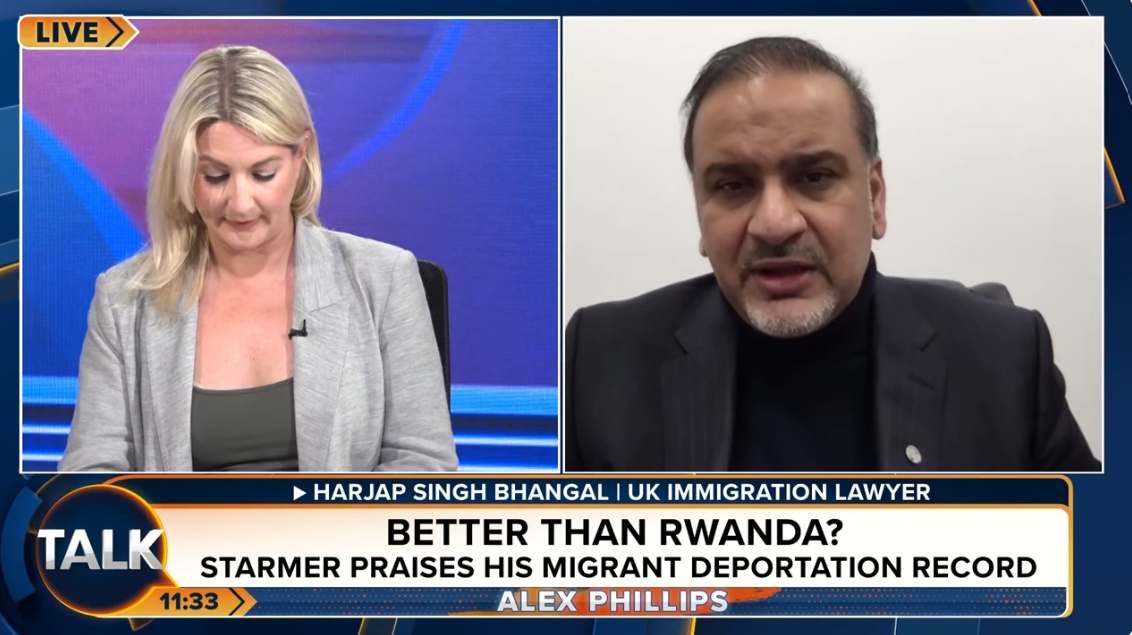“‘It’s A DOWNWARD Spiral!’: UK Immigration Lawyer BLASTS Keir Starmer Over Deportation Record Praise!”

Keir Starmer has sparked mixed reactions after boasting about a record number of deportations under his government. Starmer claimed returning illegal migrants and foreign offenders to their home countries was a more effective deterrent than controversial schemes like the Rwanda plan. But is this apparent progress truly as groundbreaking as it seems?
The Home Office announced that 16,400 failed asylum seekers, illegal migrants, and foreign criminals were deported in the first six months of the Labour government. This figure represents the highest number of deportations in a six-month period since 2017, when 17,378 were returned.
However, UK immigration lawyer Harjap Singh Bhangal questioned whether the numbers paint a complete picture:
“Yes, deportations are up, but we’re only getting half the story. How many of these people have been in limbo for years? And how many others have been granted the right to remain without public scrutiny?”
Bhangal acknowledged Labour’s historical efficiency in deportations but highlighted the Conservative government’s dramatic decline in removals during their 14 years in power. He noted that Labour’s recent numbers show improvement but do little to address the root causes of the UK’s immigration challenges.
While deportations are up, the issue of small boat crossings remains a significant challenge. Bhangal argued that tackling human trafficking gangs is critical to curbing illegal migration:
“People trafficking is now more lucrative than drug smuggling. These gangs operate sophisticated networks across borders, and their sentences are simply not severe enough to act as a deterrent.”
He emphasized that a multifaceted approach is required, including harsher penalties for traffickers, stronger international cooperation, and disruption of supply chains. Bhangal also criticized the Rwanda scheme, calling it a “gimmick” with little real impact on stopping illegal crossings.
Bhangal pointed to the need for coordinated action with European and global partners to dismantle trafficking networks. Italy, which has taken the lead in cracking down on smuggling operations, serves as an example of how collective efforts can yield results.
“We need countries like France, Spain, and Italy working together. And we also need to engage with China, where many of the boats used by traffickers are being manufactured.”
He argued that leveraging trade negotiations with countries like China could pressure them to crack down on factories producing boats for smuggling purposes.
While Labour’s recent deportation numbers show a modest uptick, Bhangal highlighted the overall downward trajectory of immigration enforcement since 2010. He warned that without addressing systemic issues, including the backlog in asylum processing and the lack of return agreements with key countries, the UK’s immigration challenges would persist.
Bhangal concluded that meaningful progress requires more than just boasting about deportation statistics:
“We need to smash the gangs, cut off the supply chain, and send a clear message that the UK is not an easy target. At the same time, we must ensure those who genuinely need protection are treated with dignity and respect.”
While Starmer’s government may have achieved a short-term victory, the long-term battle to fix the UK’s immigration system and restore public trust remains far from over.




